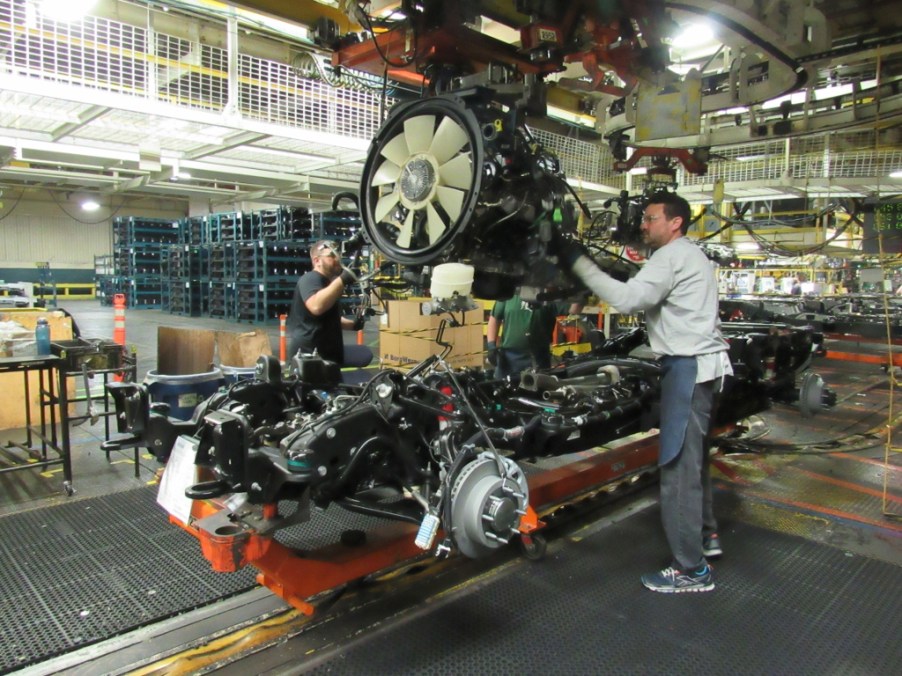
Common Duramax Problems: Should You Buy a Silverado Diesel?
The Chevy/GMC Duramax 6.6-liter diesel engine has proven to be a powerful and reliable workhorse since introduced in 2001. There were several variations of the 6.6 Duramax. They are broken down by the following identifications: LB7 (2001-2004), LLY (2004-2005), LBZ (2006-2007), LMM (2007-2010), LGH (2007-2017), LML (2011-2016), and L5P (2017-present). Some problems encountered with the Duramax run across all versions, and some are more specific to certain years.
We’ll go through a number of common problems found on the Duramax with the designation of versions it most affects. Basically, the early LB7 version had the largest share of problems. First series designs usually see more issues arise. GM has continued the development of the Duramax diesel to fix these problems. But not all.
Duramax fuel injector failure

Mostly LB7
Though GM recalled these engines and backed them with a seven-year, 200,000-mile warranty, fuel injectors failing was a big problem. A revised design mostly corrected the problem. What was the problem? The injectors functioned underneath the valve covers.
But when diesel leaks occurred, it dilutes the oil supply. This can cause main bearing failures and worse. The revised LLY version, released in 2004, located the fuel injectors externally. This also had the advantage of servicing the injectors easier and also allowed for visual inspection of leaks.
Fuel injector harness wiring

LB7, LLY, and some later models
This involves wiring in the fuel injector harness that chafes, causing broken or shorting circuits. Indications of this happening include rough running and no start. Codes usually indicate an “open circuit” for certain injectors affected by the problem. Sometimes just moving the wires to an individual injector will cause them to work better, if only for a moment. That helps in diagnosis. According to Diesel Hub, the repair is simply reconnecting, or otherwise insulating the affected wire or wires.
Fuel starvation

LB7, LLY, LBZ, LMM, LML
This problem runs across the board through the 2016 models. Air gets trapped in the fuel lines, causing starvation issues. The lack of an electric low-pressure pump to move fuel to the injection pump is the culprit. Also, the fuel filter housing for the mechanical fuel pump is susceptible to cracking. This lets air get into the fuel. The plunger inside of the fuel filter is supposed to prime the system but doesn’t always do the trick.
Water pump failure

LB7, LLY
This is a common problem for these two series 6.6-liter engines. In 2006, this problem was corrected. Pumps usually run around $150.
Engine overheating, blown head gaskets

LB7, LLY
Engine overheating is usually an issue in the summer months when towing. This was mostly corrected in 2006 when GM built the trucks with larger radiators, fans, and water pumps. Sometimes, the culprit is a fan clutch that has failed. Blown head gaskets can be the result of overheating.
Glow plug issues

LLY, LBZ
Inferior glow plug modules resulted in many glow plug failures. The module cycled glow plugs so much they would fail. If the tips of the glow plugs break off, it results in engine failure in most cases. Not good. These trucks were mostly recalled, but make sure if you buy a GM truck from this period that it has been recalled and corrected.
PCV design problems

The PCV can sometimes force engine oil to enter the turbocharger. As this builds up, oil saturation can occur in the intercooler. There are plenty of DIY fixes online for this issue.
NOx sensors

This only occurred with 2011 LML Duramax engines. A number of sensors in the exhaust system control diesel exhaust fluid into the catalyst. But the NOx sensors are vulnerable to failure, as well as DEF sensors, pumps, and tank heaters. All 2011 trucks received extended warranties.



